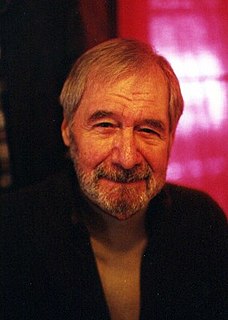A Quote by Ed McBain
In the US, we consider our foreign policy as something rooted in the protection of American ideals of democracy and human development. However, we often fail to see the damaging consequences, many of which may be unintended, on others - including Christians - living in other parts of the world.
Related Quotes
The thing that should most concern us is a shift in American foreign policy. We have had a bipartisan belief in American foreign policy based on the post-World War II institutions that believed in democratic global world, which Russia and the Soviet Union was often seen as hostile to. And most Republicans and Democrats have always basically believed in this world order. Donald Trump and Vladimir Putin and maybe Marine Le Pen do not agree with this basic structure of the world.
The flow of action continually produces consequences which are unintended by actors, and these unintended consequences also may form unacknowledged conditions of actions in a feedback fashion. Human history is created by intentional activities but is not an intended project; it persistently eludes efforts to bring it under conscious direction.
Study Bibles tend to circulate widely, so they play a disproportionate role in helping Christians and others understand holy Scripture. Further, many of our members have long used one or two other Study Bibles, and it is important that Christians not be tied too tightly to only one option, however good it may be.
Pakistan is, I always feel, hopeful. You know, our system of government is not, and the system of foreign policy whereby we do whatever is asked of us as long as the price is right only proves to fundamentalist outfits and to militant groups that when we talk of things like democracy, when we talk of things like foreign policy, what we're really talking about is being pro-American.
One must see in every human being only that which is worthy of praise. When this is done, one can be a friend to the whole human race. If, however, we look at people from the standpoint of their faults, then being a friend to them is a formidable task............ .....Thus is it incumbent upon us, when we direct our gaze toward other people, to see where they excel, not where they fail.
Those who wish to change things may face disappointment, loss, or even ridicule. If you are ahead of your time, people laugh as often as they applaud, and being there first is usually lonely. But our protection cannot come between us and our purpose. Right protection is something within us rather than something between us and the world, more about finding a place of refuge and strength than finding a hiding place.
The essence of intercultural education is the acquisition of empathy-the ability to see the world as others see it, and to allow for the possibility that others may see something we have failed to see, or may see it more accurately. The simple purpose of the exchange program...is to erode the culturally rooted mistrust that sets nations against one another. The exchange program is not a panacea but an avenue of hope.



































